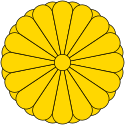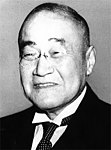
Back Shūgiin-Wahl 1947 German Elecciones generales de Japón de 1947 Spanish Élections législatives japonaises de 1947 French Elezioni parlamentari in Giappone del 1947 Italian 第23回衆議院議員総選挙 Japanese 제23회 일본 중의원 의원 총선거 Korean 1947年日本眾議院議員總選舉 Chinese 第23屆日本眾議院議員總選舉 ZH-YUE
| |||||||||||||||||||||||||||||||||||||||||||||||||||||||||||||||||||||||||||||||||||||
All 468 seats in the House of Representatives 235 seats needed for a majority | |||||||||||||||||||||||||||||||||||||||||||||||||||||||||||||||||||||||||||||||||||||
|---|---|---|---|---|---|---|---|---|---|---|---|---|---|---|---|---|---|---|---|---|---|---|---|---|---|---|---|---|---|---|---|---|---|---|---|---|---|---|---|---|---|---|---|---|---|---|---|---|---|---|---|---|---|---|---|---|---|---|---|---|---|---|---|---|---|---|---|---|---|---|---|---|---|---|---|---|---|---|---|---|---|---|---|---|---|
| Turnout | 67.95% ( | ||||||||||||||||||||||||||||||||||||||||||||||||||||||||||||||||||||||||||||||||||||
| |||||||||||||||||||||||||||||||||||||||||||||||||||||||||||||||||||||||||||||||||||||
 Districts shaded according to winners' vote strength | |||||||||||||||||||||||||||||||||||||||||||||||||||||||||||||||||||||||||||||||||||||
| |||||||||||||||||||||||||||||||||||||||||||||||||||||||||||||||||||||||||||||||||||||
| This article is part of a series on |
 |
|---|
|
|
General elections were held in Japan on 25 April 1947. The Japan Socialist Party won 143 of the 468 seats, making it the largest party in the House of Representatives following the election. Voter turnout was 68%.[1] It was the last election technically held under the Meiji Constitution in preparation for the current Constitution of Japan which became effective several days later on 3 May 1947. The upper house of the Diet was also elected by the people under the new constitution, the first ordinary election of members of the House of Councillors had been held five days before.
Numerous prominent figures were elected to the House of Representatives for the first time in this election, including former Prime Minister and House of Peers member Kijuro Shidehara, then-Prime Minister and former House of Peers member Shigeru Yoshida, and future Prime Ministers Tanzan Ishibashi, Zenko Suzuki and Kakuei Tanaka.
Yoshida remained Prime Minister following the election, acting until a successor was appointed – under the new Constitution, the cabinet depends on parliamentary support and must resign in the first Diet session after a House of Representatives election.
- ^ Dieter Nohlen, Florian Grotz & Christof Hartmann (2001) Elections in Asia: A data handbook, Volume II, p381 ISBN 0-19-924959-8





